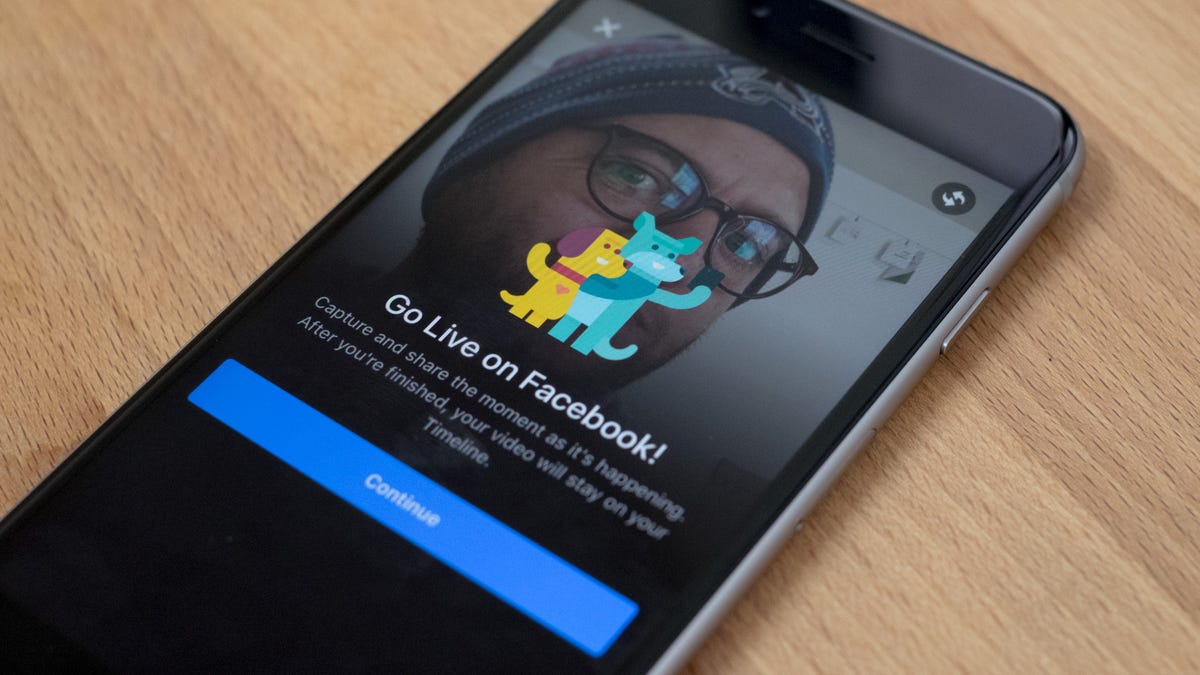Live video has made Facebook the place to be
Mark Zuckerberg's focus on live video has turned the social network into a destination of the political stage.
What a difference two years make.
Back then, when apps like Periscope and Meerkat arrived on mobile phones, live video seemed like a lark for tech nerds and poor college students looking to watch cable TV for free. But within months, protesters in Ferguson, Missouri tapped into the shaky and visceral feel of live video because they understand they can share the emotion of breaking news events with observers who might otherwise just get the news through photos and news cameras.
Fast forward to March, when Facebook began giving anyone with a phone and internet connection an easy way to broadcast live video, straight to the 1.13 billion people who use its service every day. Since then, Facebook Live has been tapped into for major events, from the Democrat's gun vote sit-in in June to the shooting deaths of Philando Castile and five Dallas police officers this month.
In each case, live video was key to telling the story. And it's what more traditional cable broadcast networks replayed in a near-endless loop as they recapped those unfolding stories.
Facebook CEO Mark Zuckerberg described these live video feeds, captured and broadcast from phones, as "graphic and heartbreaking."
That was the backdrop of Facebook's second-quarter earnings results on Wednesday, when Zuckerberg underscored how important live video has become to the company. "We see a world that's video-first," he said in a conference call with analysts. "We've seen in Minnesota and Dallas how live (video) can shine a light on important moments as they happen."
In the three months ended June 30, Facebook tallied 97 cents per share in profit, after adjustments for costs like stock-based compensation. Revenue, which comes primarily from showing ads to Facebook users, jumped nearly 60 percent to $6.4 billion. Analysts were looking for profit of 82 cents a share on sales of more than $6 billion, according to surveys from Thomson Reuters.
Facebook's shares rose more than 5 percent in after-hours trading, after closing at $123.34. The company's stock has risen more than 17 percent so far this year.
More than a billion on mobile each day
The growing importance of live video follows another trend at Facebook: the usage of smartphones. Facebook said more than 1 billion people access its service from a mobile phone each day, a new record. That represented more than 91 percent of the people who access the service each day.
Most of those mobile phones have a camera on them, and since all of them are connected to the internet, they're each a Facebook Live stream waiting to happen.
Mobile users are also making a significant amount of money for the company. Facebook counted $5.2 billion in advertising dollars from mobile devices, representing 84 percent of the company's total.
Sheryl Sandberg, Facebook's COO, said companies are increasingly switching to mobile devices as well. Over 85 percent of businesses who manage a profile-like "page" on Facebook use a mobile device, she said, and 40 percent of active advertisers have created an ad on their mobile device.
"People have shifted to mobile and marketers know they need to catch up," she said. "Mobile is no longer a nice to do, it's a must to do."
Mobile devices have also become a key part of Oculus, one of the company's long-term bets. Facebook said more than 1 million people a month are using the Gear VR, a device created in partnership with Samsung.
So how will Facebook change over time?
Zuckerberg said it's harder to type a long post on a phone, compared to a laptop computer. He's also noticed people are uploading fewer organized photo albums, despite Facebook being the most-used photo site on the web. Instead, he said, people are uploading photos after they're taken, and they're sharing with friends and groups instead of publicly to the entire community.
"The overall level of sharing is up on Facebook and what we're seeing is that how people share is evolving," he said. And it's not just about the News Feed anymore.


